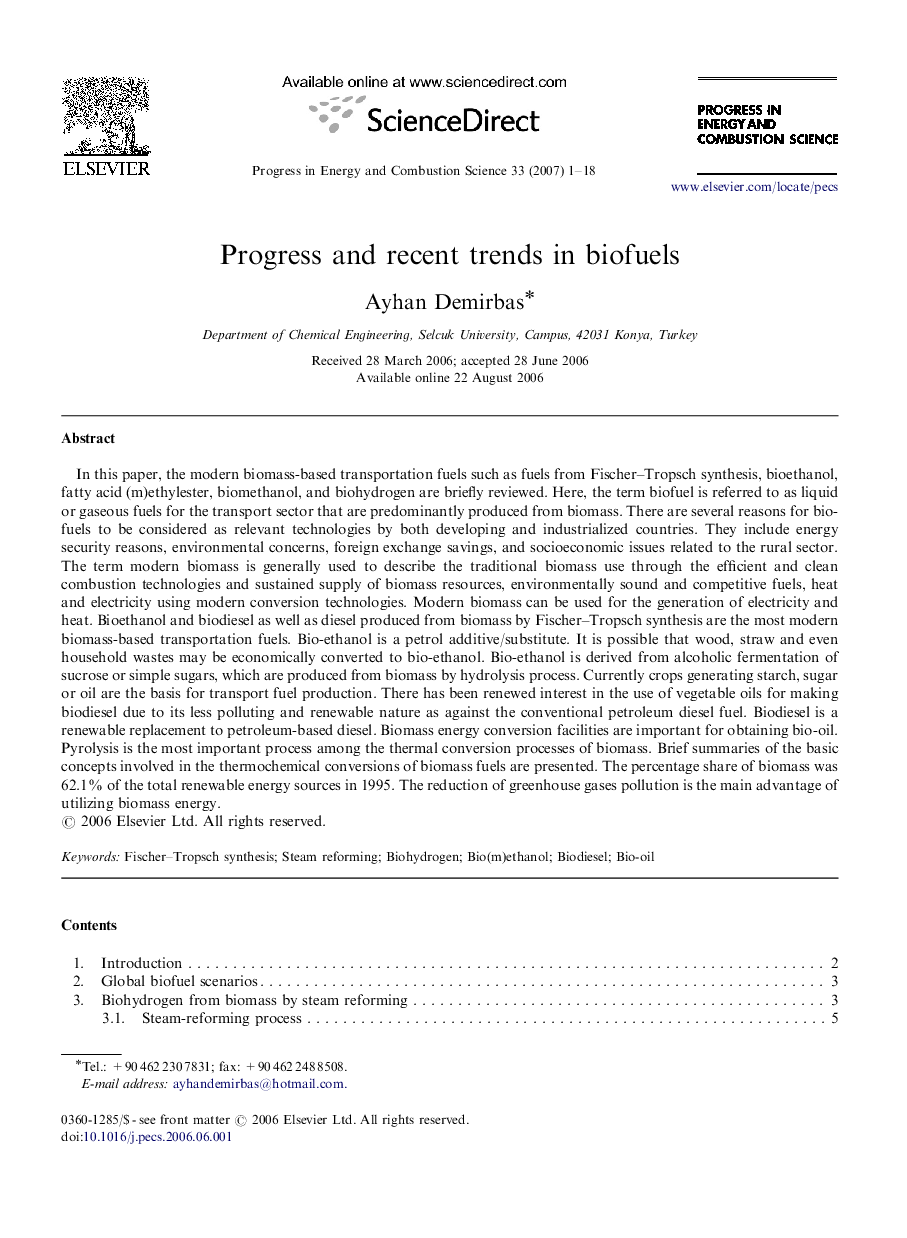| کد مقاله | کد نشریه | سال انتشار | مقاله انگلیسی | نسخه تمام متن |
|---|---|---|---|---|
| 241865 | 466349 | 2007 | 18 صفحه PDF | دانلود رایگان |

In this paper, the modern biomass-based transportation fuels such as fuels from Fischer–Tropsch synthesis, bioethanol, fatty acid (m)ethylester, biomethanol, and biohydrogen are briefly reviewed. Here, the term biofuel is referred to as liquid or gaseous fuels for the transport sector that are predominantly produced from biomass. There are several reasons for bio-fuels to be considered as relevant technologies by both developing and industrialized countries. They include energy security reasons, environmental concerns, foreign exchange savings, and socioeconomic issues related to the rural sector. The term modern biomass is generally used to describe the traditional biomass use through the efficient and clean combustion technologies and sustained supply of biomass resources, environmentally sound and competitive fuels, heat and electricity using modern conversion technologies. Modern biomass can be used for the generation of electricity and heat. Bioethanol and biodiesel as well as diesel produced from biomass by Fischer–Tropsch synthesis are the most modern biomass-based transportation fuels. Bio-ethanol is a petrol additive/substitute. It is possible that wood, straw and even household wastes may be economically converted to bio-ethanol. Bio-ethanol is derived from alcoholic fermentation of sucrose or simple sugars, which are produced from biomass by hydrolysis process. Currently crops generating starch, sugar or oil are the basis for transport fuel production. There has been renewed interest in the use of vegetable oils for making biodiesel due to its less polluting and renewable nature as against the conventional petroleum diesel fuel. Biodiesel is a renewable replacement to petroleum-based diesel. Biomass energy conversion facilities are important for obtaining bio-oil. Pyrolysis is the most important process among the thermal conversion processes of biomass. Brief summaries of the basic concepts involved in the thermochemical conversions of biomass fuels are presented. The percentage share of biomass was 62.1% of the total renewable energy sources in 1995. The reduction of greenhouse gases pollution is the main advantage of utilizing biomass energy.
Journal: Progress in Energy and Combustion Science - Volume 33, Issue 1, February 2007, Pages 1–18